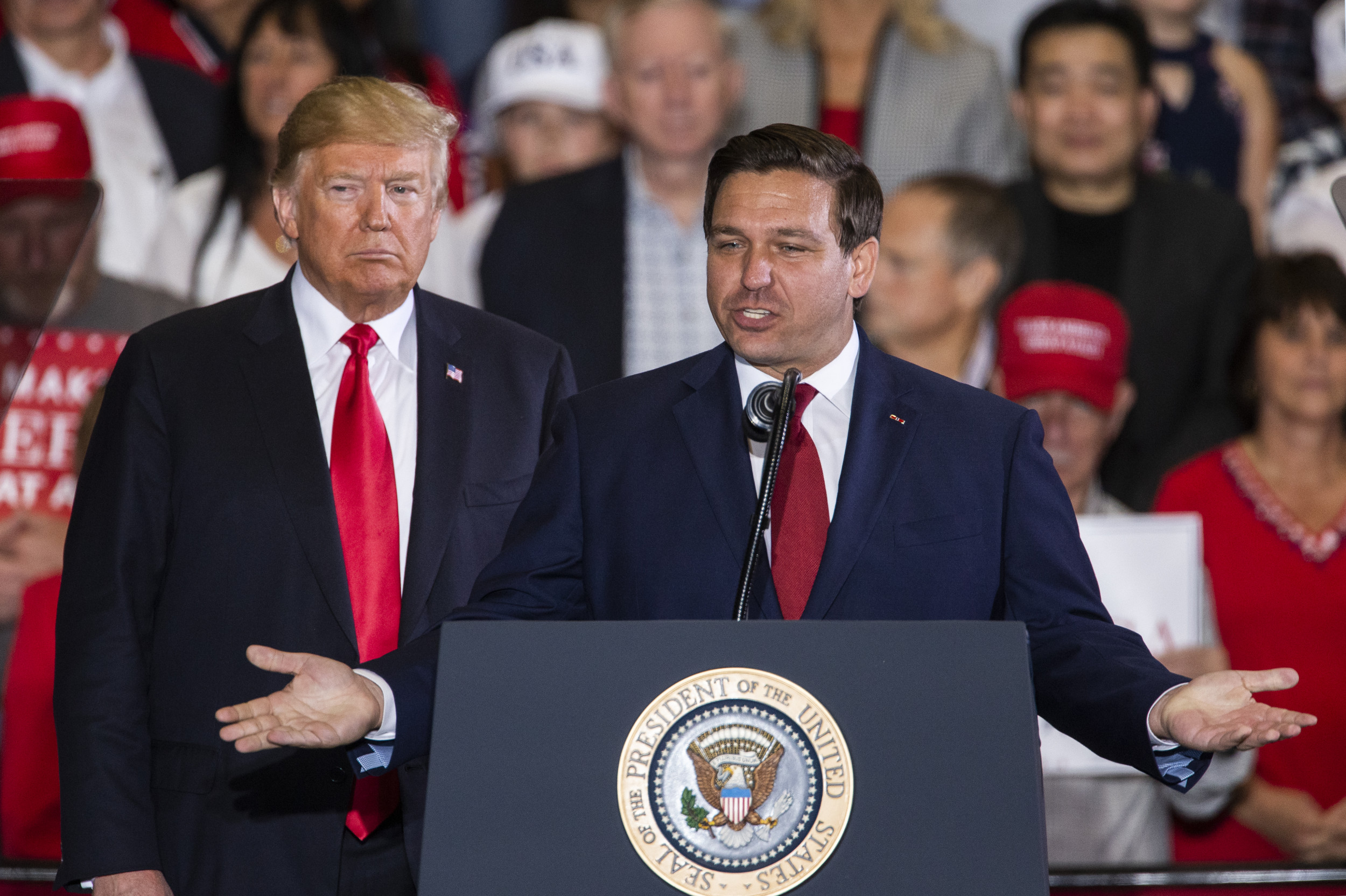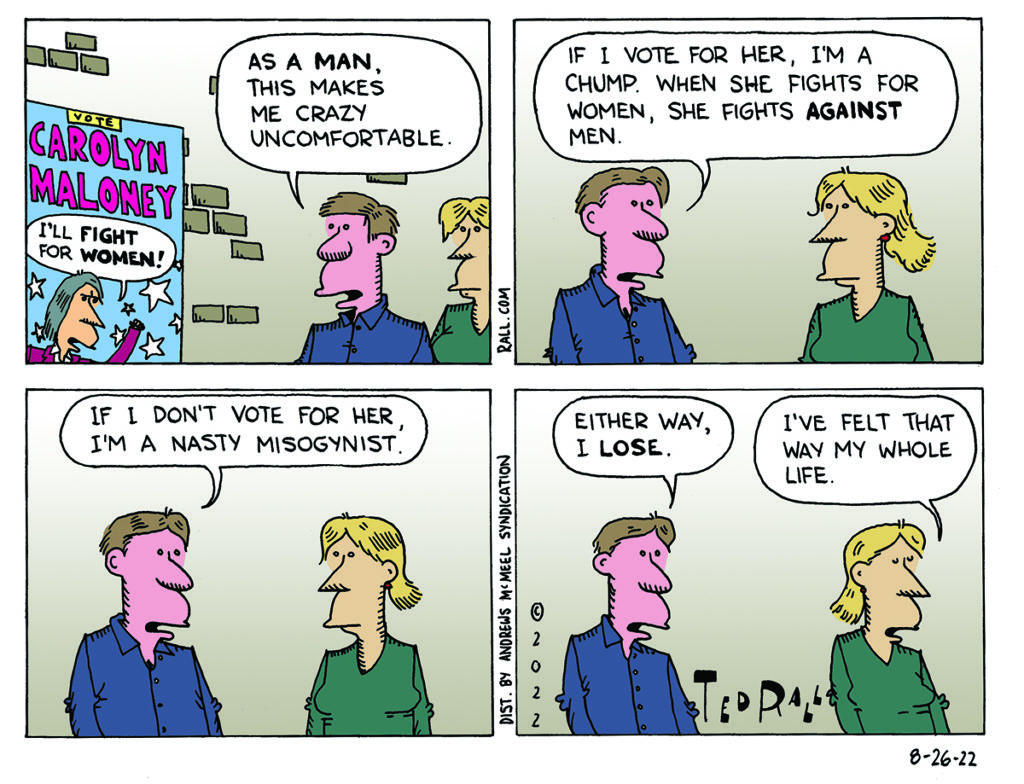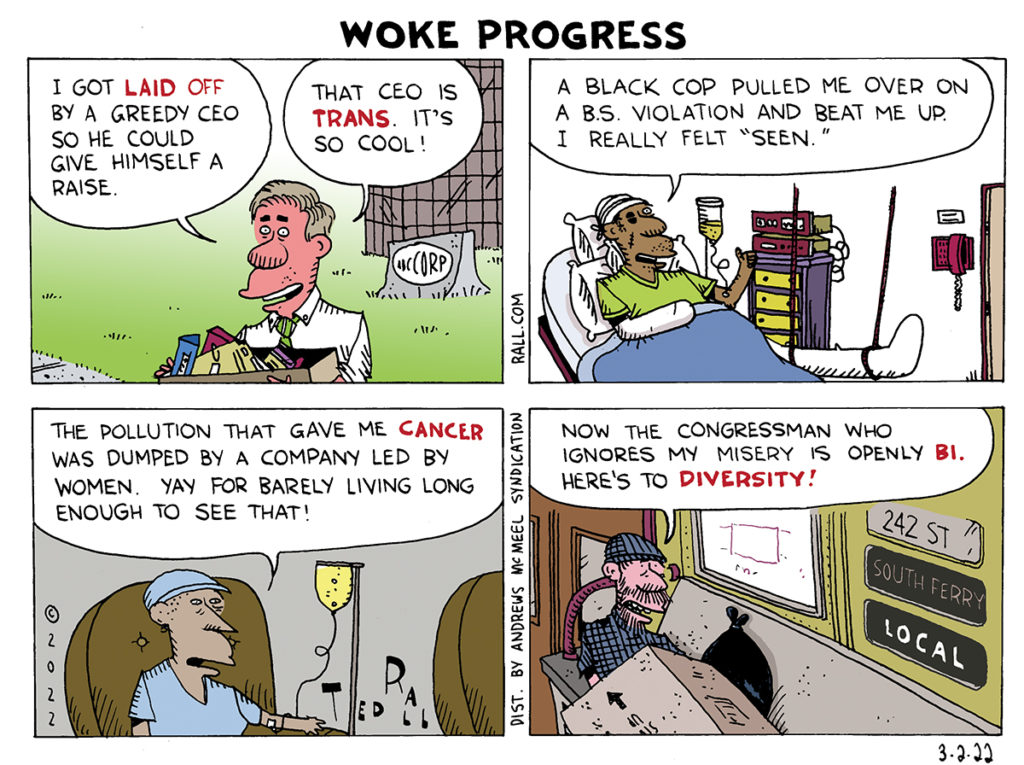
Donald Trump remains the favorite for the GOP nomination. In theoretical 2024 matchups against Joe Biden, however, Florida Governor Ron DeSantis has begun to outperform the president where Trump would be projected to lose. But DeSantis might falter once Democratic voters start to pay serious attention to him.
DeSantis knows that. He plans to undermine liberal opposition with his secret weapon: his consistent ability to identify populist themes tailormade for partisan Republican primary voters, yet are crafted to tear away enough Democrats to become wedge issues in a general election campaign.
DeSantis has staked out a hardline position as the heir apparent to lead the MAGA movement—thank you, Donald, time to pass the torch—whose conservative positions and aggressive tone could turn off moderates and spook liberals into turning out in higher numbers. DeSantis can mitigate that challenge by creating some common ground with his natural enemies. His current slate of wedge-issues-to-be, which prima facie look like red meat for the growling dogs of the right base, also have potential to pull in centrists and even some progressives who silently concur.
Of the various national and regional responses to the pandemic, Florida initially joined the national lockdown but then landed solidly into the rapid-reopening camp. “People know that Florida is a free state,” DeSantis summarized his position a year ago. “They’re not gonna have you shut down. They’re not gonna have restrictions.” After late 2020 if you wanted to eat indoors or you wanted your kid to attend physical school with flesh-and-blood teachers without a mask, Florida became your beacon—so much so that it triggered a mini-migration to the state.
Critics say DeSantis played fast and loose with Covid death and infection data in order to disguise the failure of a policy in which Floridians had a higher case rate than the national average and Florida seniors had “a higher death rate than any other state” as of late 2022, according to the CDC.
In politics, perception is reality. DeSantis’ “Covid gamble paid off,” as Helen Lewis observed in The Atlantic. “When liberals look at DeSantis, they see a culture warrior with authoritarian tendencies,” Lewis wrote. “But as Americans have tired of pandemic precautions, and as regrets about long school closures have surfaced even among Democrats, DeSantis has been able to attract swing voters [in his gubernatorial reelection campaign] by positioning himself as a champion of both cultural and economic freedom.”
DeSantis’ nativist stance on the migrant crisis plays a similar tune. Flying clueless asylum applicants to Martha’s Vineyard was counterproductive—it would have been cheaper to house them indefinitely than to blow a cool $12 million of Floridians’ tax dollars on a stunt—and cruel. But closed-border hardliners loved it.
And some Democrats silently cheered. At least DeSantis did something to draw attention to immigration—which Biden and the Democrats would rather not discuss. The border crisis became a major topic of debate during the 2022 midterms, during which frustrated Democrats in vulnerable districts lashed out at the White House for their failure to grasp immigration as a potential wedge. A Spectrum News/Siena College Poll released a month before the midterms found that DeSantis was onto something: 50% of independents supported Florida deporting migrants, especially to Massachusetts and New York. He retained strong support among his state’s Latinos.
Nationally, Democratic voters remain pro-immigration. But things are beginning to shift in a direction that creates an opportunity for a disciplined Republican message to create inroads among swing voters. “The percentage of Democrats dissatisfied and desiring less immigration was nearly nonexistent in 2021, at 2%, before rising to 11% last year and 19% now,” Gallup reported on February 13th. “Independents’ dissatisfaction and preference for less immigration has about doubled since 2021, rising from 19% at that time to 36% today.”
DeSantis’ attacks on “woke” education and AP Black Studies presents as a classic racist dog whistle to Biden Democrats. “He’s gone full-blown white supremacist,” columnist Jennifer Rubin cried in The Washington Post.
But many left-leaning voters also wonder whether public schools really ought to offer AP courses outside core subjects like history, math, English and foreign languages, as well as whether queer studies or intersectionality are appropriate topics for discussion in high school. Overall, most voters do not oppose DeSantis’ proposed ban on AP Black Studies. A surprisingly high 19% of Democrats, more than enough to make a difference in a tight race, side with DeSantis.
DeSantis’ judicious deployment of well-timed wedge issues—now that trust in the news media is so low people actually think the press misleads them intentionally, he says it should be easier to sue reporters for libel—has already endeared DeSantis to Republicans looking for a Trump-like candidate without the baggage. If he beats his former mentor and goes on to fight a Democrat, he’ll look somewhat reasonable in some respects to some liberals and some moderates. That’s a tricky slalom ride, one he’s navigating well so far.
(Ted Rall (Twitter: @tedrall), the political cartoonist, columnist and graphic novelist, co-hosts the left-vs-right DMZ America podcast with fellow cartoonist Scott Stantis. You can support Ted’s hard-hitting political cartoons and columns and see his work first by sponsoring his work on Patreon.)



